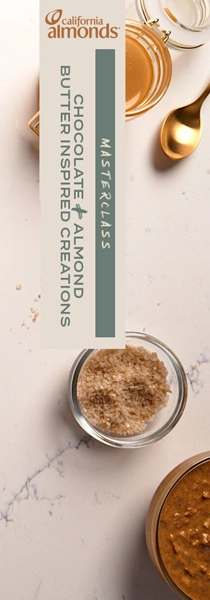
- Industry news
Industry news
- Category news
Category news
- Reports
- Key trends
- Multimedia
- Journal
- Events
- Suppliers
- Home
- Industry news
Industry news
- Category news
Category news
- Reports
- Key trends
- Multimedia
- Events
- Suppliers

In September Campbell’s launched Select Harvest soups which are promoted as free of MSG. More recently General Mills brand Progresso said it is removing added MSG, from all Progresso soups, with twenty-six products already free of the ingredient.
27/10/08 The US based Glutamate Association has responded to recent advertising by Campbell’s and General Mills soup brands by reiterating that research conducted over the past decade has only reinforced the role of monosodium glutamate as a safe and useful ingredient in the diet. “These new soup campaigns are nothing more than marketing gimmickry”, the association said in a statement. In September Campbell’s launched Select Harvest soups which are promoted as free of MSG. More recently General Mills brand Progresso said it is removing added monosodium glutamate, from all Progresso soups, with twenty-six products already free of the ingredient.

But the association warned that the recent flurry of advertisements that discuss the monosodium glutamate (MSG) content of canned soups as a point of differentiation between brands has no doubt caused confusion among consumers. “Consumers may be wondering if there is new research or some other reason why they are being encouraged to choose foods that do not contain MSG. There is not,” they said.
Time and again consumer research has shown that American shoppers’ top food product concerns are taste and cost. “It is a disservice to consumers to imply that the inclusion of MSG in canned soup is a detriment, when in fact, the use of MSG in canned soups has long been recognized as a safe, effective way to provide consumers with exactly what they want—a soup that tastes good,” stated Brendan Naulty, the president of The Glutamate Association.
This year marks the 100th “birthday” of MSG. For a century now consumers and chefs alike have cooked with MSG and purchased seasonings, frozen entrees, salad dressings, snack foods, soups, and numerous other products that contain MSG. Home cooks, chefs, and food manufacturers use monosodium glutamate because it gives foods, particularly savory dishes, a richer, more well-rounded flavor.
More recent research shows MSG can be useful in reduced-sodium foods. In fact, by using small amounts of MSG in conjunction with decreased levels of salt, the sodium content of foods can be reduced by 30-40%. Given the increasing emphasis in the United States on developing lower sodium foods, MSG is one of the solutions that allows for the creation of delicious reduced sodium dishes with flavors comparable to their full sodium versions, the Association noted.
Given the ability of MSG to enhance flavor in reduced sodium foods, consumers that are trying to reduce their sodium content while enhancing flavor should look for lower sodium foods containing MSG and should consider incorporating MSG into the foods they make at home.
The key to MSG’s flavor-enhancing ability is the amino acid glutamate (glutamic acid). Glutamic acid is found naturally in many foods, including milk, meat, poultry and vegetables. The human body also produces large amounts of glutamic acid. In 1995 the Federation of American Societies for Experimental Biology (FASEB) and the FDA concluded that there are no differences between the form of glutamate in MSG and that found naturally in foods like Parmesan cheese, tomatoes, and mushrooms.
The Association noted that the safety of MSG is well recognized. The FDA designated monosodium glutamate as “Generally Recognized As Safe” (GRAS) in 1959. The agency does require that when MSG is added to a food product, it must be listed in the ingredient statement. The FDA considers “no MSG” and “no added MSG” claims misleading when appearing on foods containing other sources of added free glutamate, such as yeast extracts or hydrolyzed proteins.
Though originally extracted from a Kombu seaweed found off the coast of Japan, today in America MSG is produced through the natural fermentation of corn glucose. MSG’s long history of safe use in the worldwide food supply is supported by scientific and regulatory bodies around the globe, including the American Medical Association, the European Union Scientific Committee for Food, and the Joint FAO/WHO Expert Committee on Food Additives.












